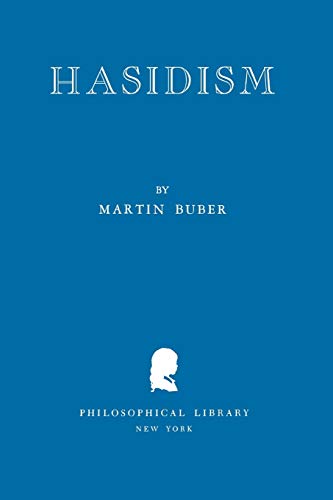Hasidism
Martin Buber
BOOK REVIEW

In the tapestry of philosophical literature, few works resonate with the fervor and spiritual profundity as Martin Buber's Hasidism. This seminal piece, birthed in the wake of a tumultuous post-war era in 1947, is not merely a compilation of teachings; it stands as a testament to a deeply humanistic quest for connection, reverberating with the very essence of life itself.
Buber, a luminary in Jewish thought, takes us on an illuminating journey through the heart of Hasidic Judaism, delving into its mystical nuances that pulse with vibrancy and authenticity. His exploration transcends the mere academic; it taps into the pulsating spirit of a tradition rich with emotion, fervor, and a compelling zest for existence. Here, he unveils not just a faith, but a lived experience, teeming with stories that capture the soul.
Readers often remark on how Buber's narrative envelops them, drawing them into a world imbued with passion and rawness. The stories of revered Hasidic masters come alive, their teachings brimming with wisdom that pulses like a heartbeat. The raw emotion behind each tale compels reflection, instilling a sense of urgency within us to connect with our own spiritual narratives. The journey through Buber's pages is a call to awaken-to recognize the divine within the everyday, to see the miraculous within the mundane.
The essence of Hasidism discussed by Buber reverberates with the idea that human relationships are sacred. He illustrates how authentic interactions can ignite a flame of understanding that transcends the superficiality of modern existence. His words challenge you to question: How deeply do you engage with those around you? Are you merely coexisting, or are you truly connecting?
This exploration does not shy away from the dark corners of existence. It confronts the shadows of despair, loss, and isolation-reminding us that even in our darkest moments, a flicker of hope can ignite a fire of resilience. Buber's insistence on the community, the idea that we are all interconnected, resonates at a time when division seems prevalent.
Critics have pointed out Buber's idealism; some argue that his vision of community and connection is overly romanticized. Yet, therein lies the brilliance of his work. In an age marked by disconnection and isolation, the yearning for authenticity is more palpable than ever. Buber's vision isn't a utopia; it's a possibility, urging us to wrestle with our capacity for empathy and compassion.
The emotional weight of Hasidism is not lost on readers today. Many find themselves teetering on the edge of tears, struck by Buber's poignant narrative style that weaves together the joys and sorrows of Jewish life. Each story serves as a reminder that we carry our histories within us. It's here, in this sacred act of remembrance and reflection, that healing begins.
Buber's influence stretches far beyond the boundaries of Jewish thought. His concepts have impacted great thinkers across disciplines-from existentialists to theologians-spurring a movement towards acknowledging the relational aspect of human existence. In a world inundated with transactional relationships, Buber elegantly resurrects the notion of presence and engagement, urging us to embrace the messy beauty of our interconnections.
So what is the takeaway from this profound exploration? It's an invitation-a clarion call to step past the insidious veil of apathy and enter a realm where every interaction holds potential, where every soul encountered is a doorway to understanding. Hasidism is not just about Jewish mystical thought; it's a universal guide to living authentically and relationally in a fragmented world.
You may find yourself unable to put the book down, each page igniting a spark that propels you toward a deeper connection with yourself and others. So, ask yourself-are you ready to embrace the transformative power that awaits within these pages? Dive into Buber's Hasidism and unleash the profound impact it could have on your understanding of life, relationships, and the divine spark that resides in us all. ✨️
📖 Hasidism
✍ by Martin Buber
🧾 224 pages
1947
#hasidism #martin #buber #MartinBuber